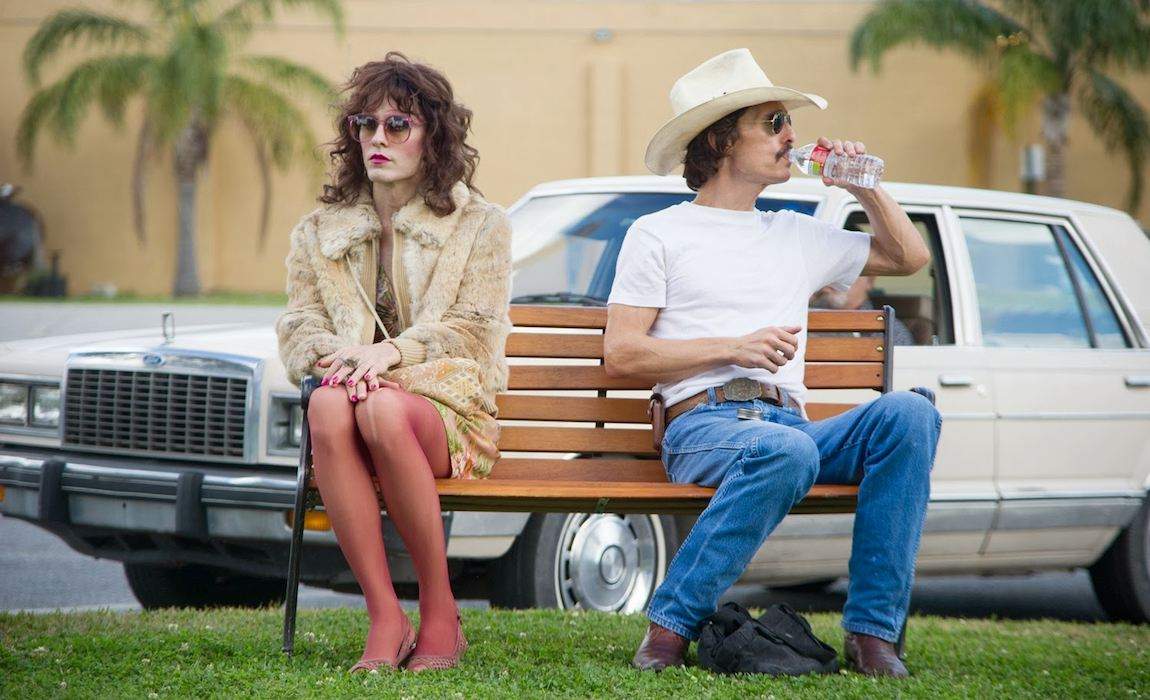Dallas Buyers Club
Even discounting their weight loss, both McConaughey and Leto are in phenomenal form.
Overview
If you'd said five years ago that Matthew McConaughey was one of the finest actors of his generation, you'd have been a laughing stock. As it turns out, you'd also have been right. After spending most of last decade taking his shirt off in rom-coms and exhibiting poor equilibrium in film posters, the Texan has undergone a total reinvention in recent times, stringing together a series of scene-stealing supporting turns in films like Killer Joe, Magic Mike and The Wolf of Wall Street, along with more serious dramatic performances in Mud and HBO's True Detective.
His role in Dallas Buyers Club, however, is his most transformative yet. With Christian Bale-like commitment, the actor is down to skin and bones as Ron Woodroof, a real-life AIDS patient who, at a time when the legally permitted treatments were proving totally ineffectual, ruffled the feathers of the Federal Drug Administration by smuggling unapproved medicines in through Mexico.
Even more emaciated than McConaughey is Jared Leto, nigh unrecognisable as an AIDS-suffering transgender woman named Rayon. Together, she and Woodroof thumb their noses at the medical bureaucracy by forming the 'Dallas Buyers Club', providing patients with imported drugs in return for a $400 monthly fee.
Even discounting their weight loss, both actors are in phenomenal form. McConaughey brings a rough-around-the-edges humanity to his character, an outlandish, hustling, often flat-out unlikable man, whose gradual transition from homophobic swindler to altruist is handled with a refreshing degree of nuance. Leto, meanwhile, disappears completely into his part, creating a kind, funny, heartbreaking character whose unlikely friendship with Woodroof gives the movie its beating heart.
French-Canadian director Jean-Marc Vallée does excellent work behind the camera, adopting a considerably less flashy approach than he used in his earlier films Café de Flore and C.R.A.Z.Y., while nonetheless crafting a subtly distinctive aesthetic. Screenwriters Craig Borten and Melisa Wallack likewise deserve credit for avoiding false sentiment and typical biopic cliches.
Where Dallas Buyers Club runs into trouble is in its relationship with real life. Many have disputed the film's claim that the FDA approved drug AZT was poisonous, while also questioning the effectiveness of Woodroof's unregulated alternatives. Others have accused the filmmakers of distorting the history and spirit of AIDS activism by sidelining gay characters in favour of a heterosexual protagonist. Like any movie claiming to be based on real life, viewers would be wise to engage in some post-film research, to separate facts from fiction.
At the same time, Dallas Buyers Club also deserves credit for being the first Hollywood film with significant LGBTQ themes since Brokeback Mountain in 2005, and the first significant AIDS film since Philadelphia in 1993. As problematic as the movie's approach may sometimes be, it cannot be worse than not addressing these subjects at all. Nor can it detract from the strength of Vallée's direction, nor the sensational work of his actors.





